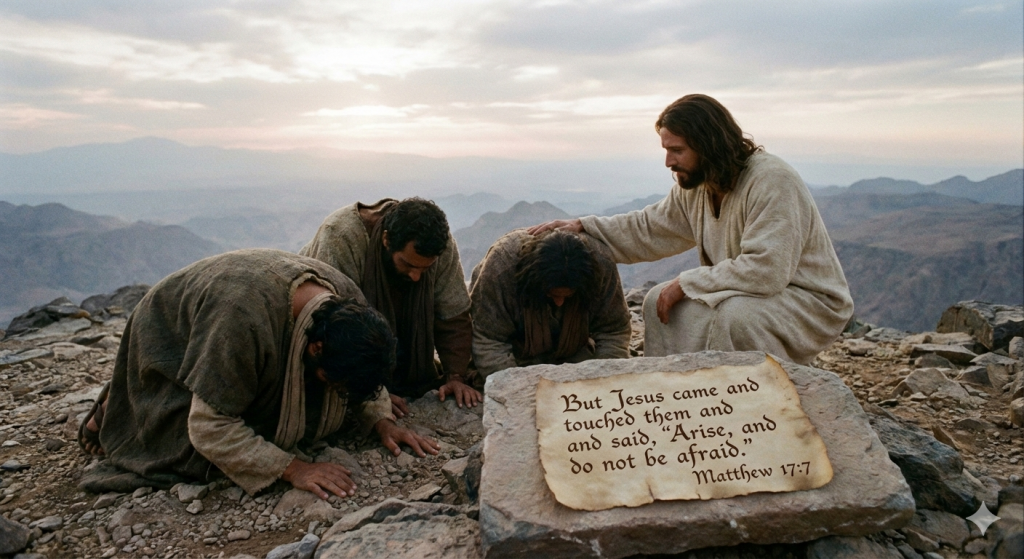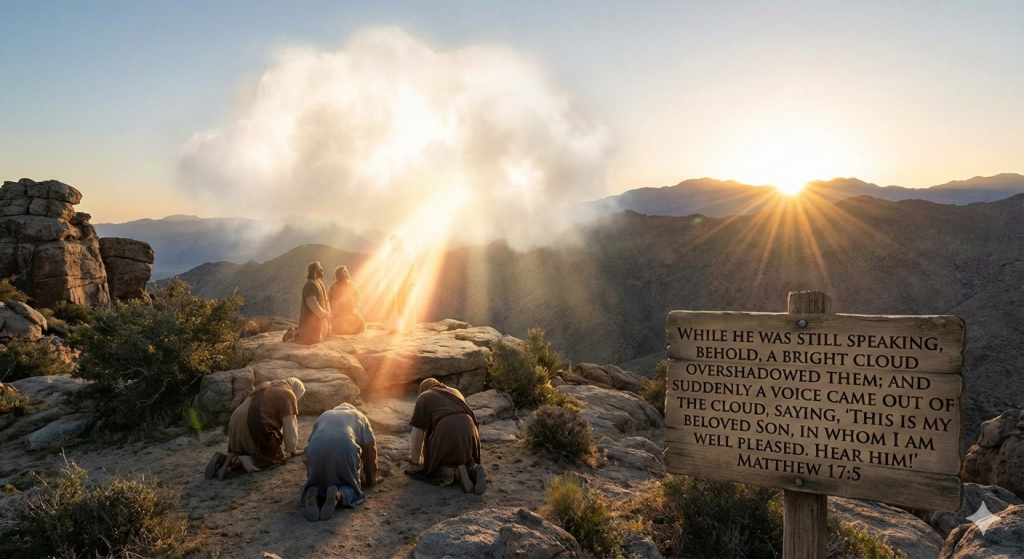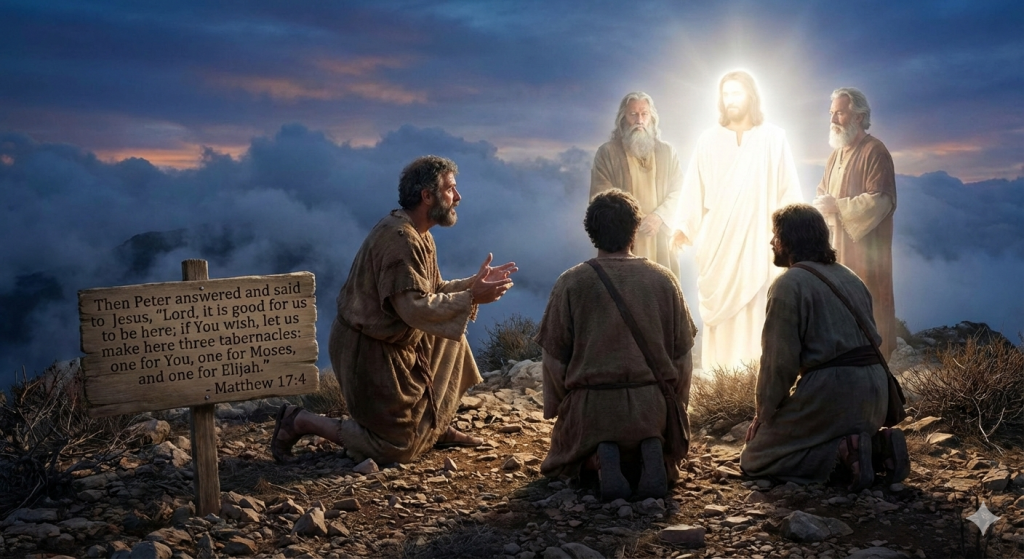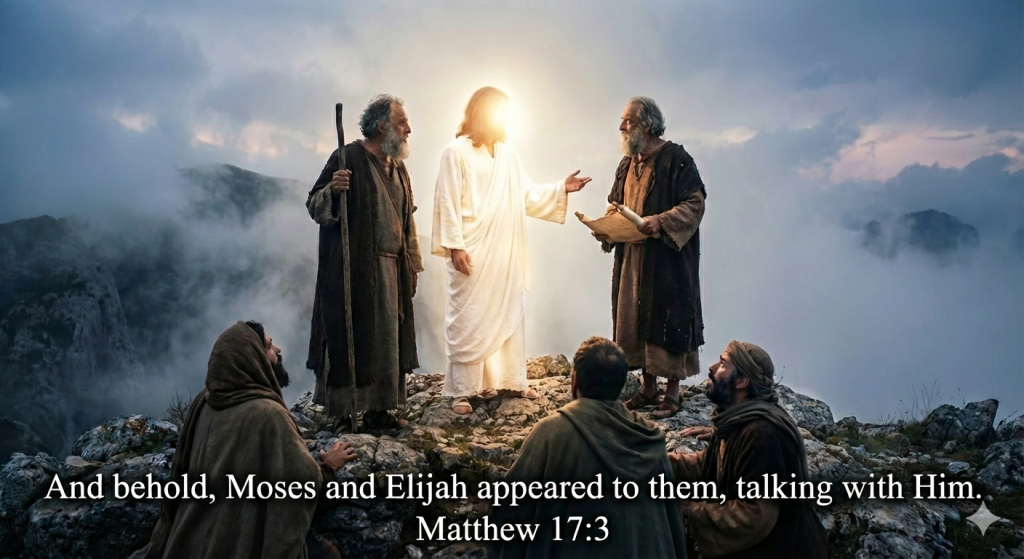Saturday, 21 February 2026
But Jesus came and touched them and said, “Arise, and do not be afraid.” Matthew 17:7
Note: You can listen to today’s commentary courtesy of our friends at the “Bible in Ten” podcast. (Click Here to listen).
You can also read this commentary, scrolling with music, courtesy of our friends at “Discern the Bible” on YouTube. (Click Here to listen), or at Rumble (Click Here to listen).
“And He came, Jesus. He touched them, and He said, ‘You rouse, and you fear not’” (CG).
In the previous verse, after hearing the voice from heaven, the disciples fell on their faces and were greatly afraid. Matthew next records, “And He came, Jesus. He touched them.”
This is something seen elsewhere, in both testaments. When a person is presented with the presence of deity, it so overwhelms him that he falls to the ground in a stupor. But then, a comforting hand is presented to him –
“And I, Daniel, alone saw the vision, for the men who were with me did not see the vision; but a great terror fell upon them, so that they fled to hide themselves. 8 Therefore I was left alone when I saw this great vision, and no strength remained in me; for my vigor was turned to frailty in me, and I retained no strength. 9 Yet I heard the sound of his words; and while I heard the sound of his words I was in a deep sleep on my face, with my face to the ground.
10 Suddenly, a hand touched me, which made me tremble on my knees and on the palms of my hands. 11 And he said to me, ‘O Daniel, man greatly beloved, understand the words that I speak to you, and stand upright, for I have now been sent to you.’ While he was speaking this word to me, I stood trembling.” Daniel 10:7-11
“When I turned to see the voice that spoke with me. And having turned I saw seven golden lampstands, 13 and in the midst of the seven lampstands One like the Son of Man, clothed with a garment down to the feet and girded about the chest with a golden band. 14 His head and hair were white like wool, as white as snow, and His eyes like a flame of fire; 15 His feet were like fine brass, as if refined in a furnace, and His voice as the sound of many waters; 16 He had in His right hand seven stars, out of His mouth went a sharp two-edged sword, and His countenance was like the sun shining in its strength. 17 And when I saw Him, I fell at His feet as dead. But He laid His right hand on me, saying to me, ‘Do not be afraid; I am the First and the Last. 18 I am He who lives, and was dead, and behold, I am alive forevermore. Amen. And I have the keys of Hades and of Death.’” Revelation 1:12-18
Along with touching them, it says, “and He said, ‘You rouse, and you fear not.’”
The words of Jesus and the familiarity of His voice would have brought them to their senses and let them know that, despite the terror the manifestation of the voice brought, they were safe in His presence.
Life application: The lesson for the disciples is the same as the lesson for us today. Though humans throughout the world and in an almost unlimited number of religions constantly talk about God in their regular conversation, there is no fist-bumping fellowship between the two.
Rather, the perfections of God in contrast to the imperfections found in man mean that we should rather be terrified of encountering Him on our own merits. It cannot be known how the voice from the Father occurred, but it struck terror in the hearts and minds of the disciples.
It is the same reaction as occurred at Mount Sinai when Israel heard the words of the Lord God when the Ten Commandments were spoken. At that time, their response to Moses was, “You speak with us, and we will hear; but let not God speak with us, lest we die.”
Jesus is there to mediate between His Father and us. It is His perfection that allows this. Without that, there would only be horror at the majesty of God in relation to our own infinitely fallen state.
It is Jesus who restores harmony between the two. It cannot come about through Muhammad, Buddha, Krishna, Mary, or any other person or figure who is prayed to by the deceived people of the world. Without Jesus, there is only the expectation of judgment and condemnation. Thank God for Jesus Christ, who makes our restoration with God possible.
Lord God, how grateful we are for the giving of Your Son to bring us back to You. We praise You, and we will praise You forever and ever because of Him. Thank You for Jesus Christ our Lord. Amen.





